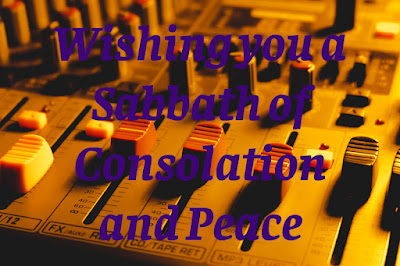The Best Is Yet to Come: Many people are called legends. Few embodied the word like Tony Bennett, who passed away last week at the age of 96.
Thus wrote Dan Rather in his Substack newsletter Steady on July 23rd. Mr Rather continued:
His voice. His presence. His style. He was timely and timeless. He had an otherworldly talent of coaxing the sublime out of the music he sang. But he was also a consummate craftsman and tireless worker. He earned his longevity, and we all benefited from it.
Bennett was such a fixture across the decades that it is almost unbelievable that he is gone. But life, like the songs we sing, eventually must hit its final notes. And in Bennett’s case they crescendoed toward the end. His later-life collaborations with singers young enough to be his grandchildren — like Lady Gaga — prove that relevance is a state of mind.
In art, music, and life in general, we all can benefit when we reach across generations to learn from each other, staying curious and inspired.
In the outpouring of tributes to Bennett, we learned about his service in World War II, his support for civil rights, and his dark period in mid-life when his popularity had ebbed and substance abuse nearly killed him. But America loves second acts, and Bennett had many highlights — and Grammys — to come.
In a pop culture often obsessed with youth, Bennett’s popularity with young listeners shows we may want to rethink society’s definition of “cool.”
Over the decades, Bennett’s songs have brought countless smiles, so we figured it would be fitting to share a few of them today. Choosing from his catalog, however, is an exercise in being overwhelmed — so many classics. We’ve selected three that we felt spoke to the spirit of the Steady newsletter.
We start with The Best Is Yet To Come, which brims with optimism and resilience. The melody swings, and the lyrics match a feeling of uplift and hope. This version with the incomparable Diana Krall and dancers was particularly joyful.
speaks to a yearning for inclusion, love, and empathy. The line “Every voice would be a voice to be heard” feels particularly fitting at a time when many who are already marginalized are also being silenced.
It was recorded on a whim and became an unlikely classic. People just liked hearing it and hearing Tony Bennett. And what better tribute can a singer or a song have?
Moses was then able to lead (but not accompany) the People Israel to the Promised Land, the Land Flowing with Milk and Honey, which (of course) turned out to be the Land of Canaan, which (much) later became the Land of Israel.
Not a bad choice, Abq Jew and countless colleagues have emphasized. But if Moses had kept going, he could have brought us all to California.
Instead of Shirat HaYam, we might all be singing I Left My Heart in San Francisco. About which Wikipedia tells us:
"I Left My Heart in San Francisco" is a popular song, written in the fall of 1953 in Brooklyn, New York, by George Cory (1920-1978) and Douglass Cross (1920-1975) and best known as the signature song of Tony Bennett.The song was released as a single by Bennett on Columbia Records as the b-side to Once Upon A Time, peaked at #19 on the Billboard Hot 100, and was later issued on the album of the same name.
The song is one of the official anthems for the city of San Francisco.The music was written by Cory, with lyrics by Cross, about two amateur writers nostalgic for San Francisco after moving to New York.In December 1961, in the famous "Venetian Room" at the Fairmont Hotel in San Francisco, Tony Bennett first sang "I Left My Heart in San Francisco".
In the audience that night were San Francisco mayor George Christopher and future mayor Joseph L. Alioto. From the 1960s through the 1980s, at San Francisco's premier supper club the "Venetian Room," Bennett sang the city song.It became a hit on the pop singles chart in 1962 and spent close to a year on various other charts, achieving gold record status. It then won the top prize of Grammy Award for Record of the Year, as well as for Best Male Solo Vocal Performance.In 2001 it was ranked 23rd on an RIAA/NEA list of the most historically significant Songs of the 20th Century.



No comments:
Post a Comment